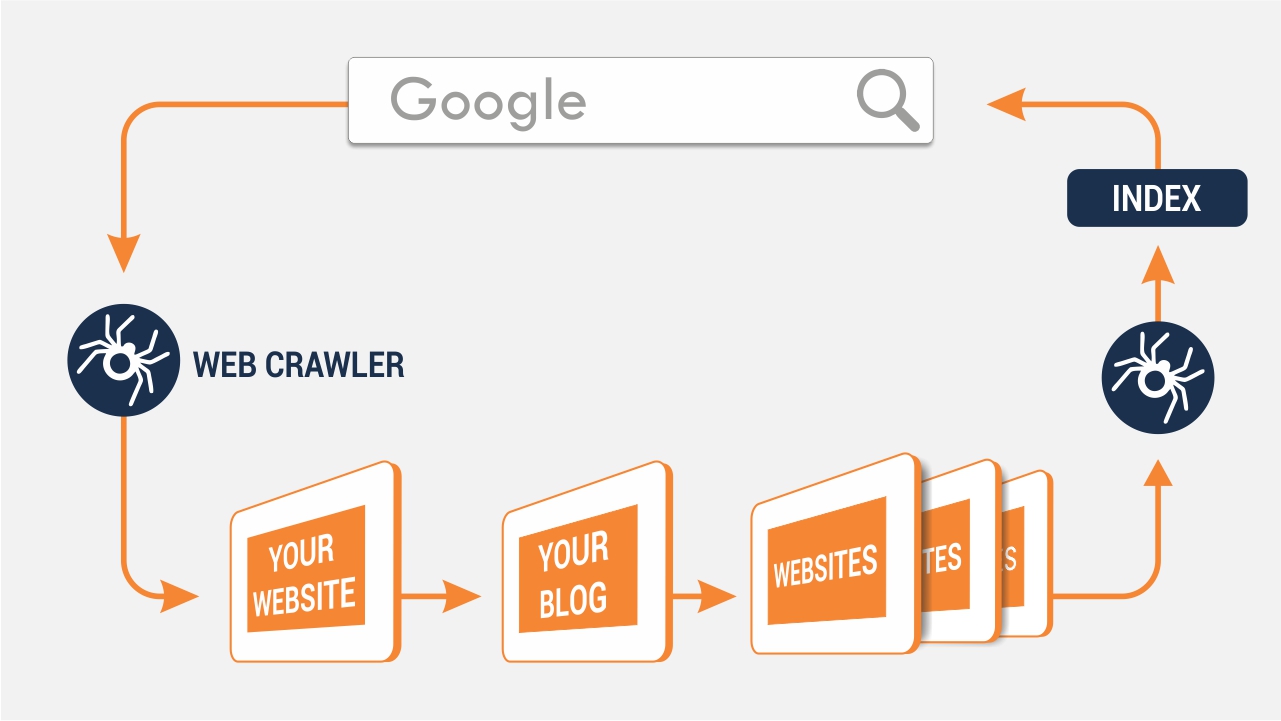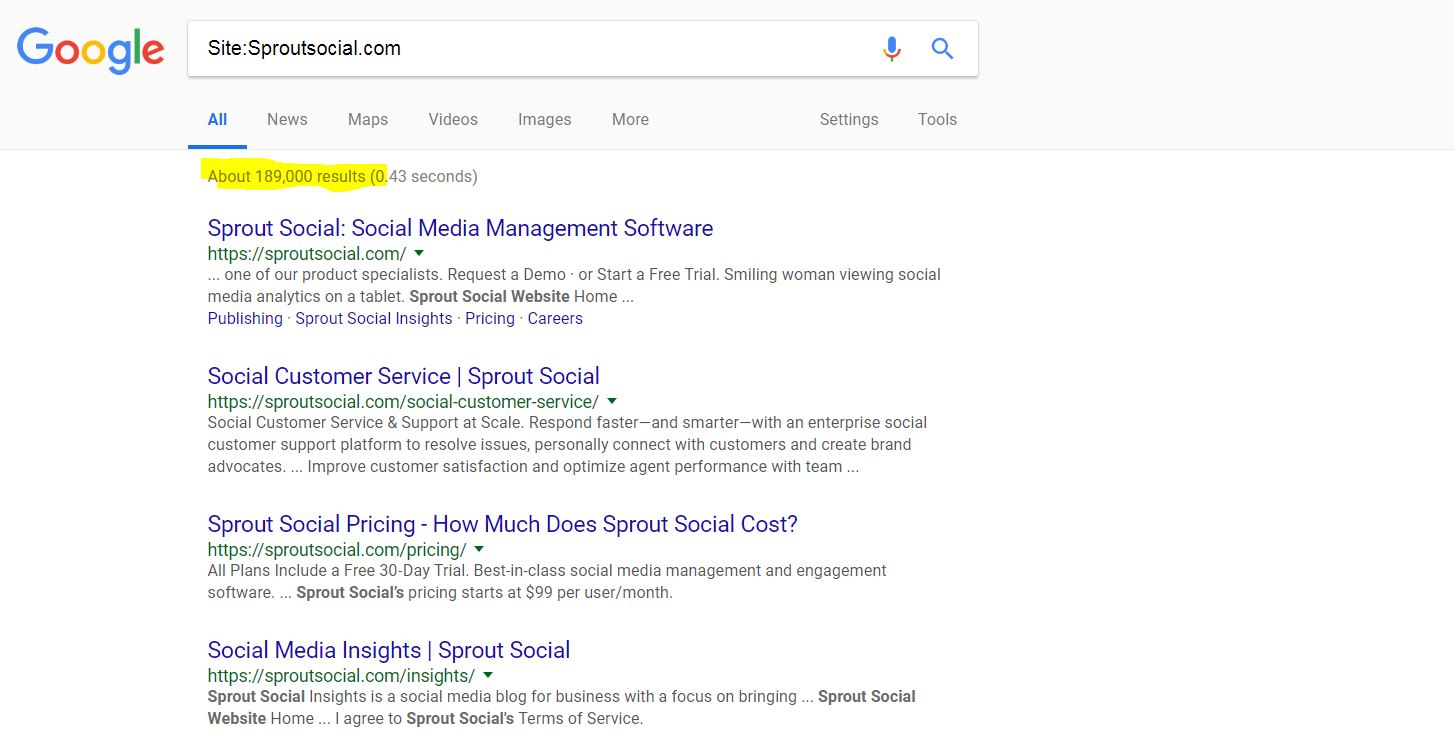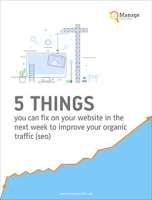Did you know that Google processes around 40,000 search queries per second? That’s around 3.5 billion searches per day, and 1.2 trillion searches a year!
Search engines have become a crucial component in our daily lives because we know that places like Google have the answers to our most pressing questions. However, what many developers, business owners, and entrepreneurs don’t know – is how search engines work, and how they decide which results to display at the top of the result feeds.
Companies everywhere want to answer digital marketing’s most pressing questions: “What is SEO, and how does it work?”. What happens when you type a query into Google? By discovering the answer to this question, you can get to the bottom of “Search Engine Optimization” and make your website more appealing to people and bots alike.
The more you understand how to do SEO marketing effectively, the more you can develop content that helps you to rank for your preferred terms.
Let’s get started.

Table of Contents
What is a Search Engine, and What Does It Do?
A search engine is a highly advanced computer program.
These complex pieces of software are constantly working to make sure that you get the best, most precise results every time you issue a search query. So, what does this consistent prep work include? Well, it starts with two primary stages. The first stage is when the search engine crawls through the information and discovers the most valuable content to show to users. The second stage involves organizing that first lot of information into results that satisfy customers.
In the world of Search Engine Optimization, the preparation part is called “Crawling” and “Indexing”.
Crawling and Indexing
If you imagine that the World Wide Web is a giant map, each building, subway station, and bus-stop on that map is a document that exists in the digital sphere. For instance, the buildings might be web pages, while the smaller components might be a PDF or JPG. Search engines need to be able to crawl through the entire map to create a full picture of what exists online.

The Search Engine Bots crawl through the internet using something called an <a href> link. It sounds complicated, but it just a bit of code around the standard URLs you see online every day. For instance, an example of an <a href> link might be: <a href=http://www.example.com/” >Link example</a>
The “Link example” part of the code above is the part that describes what kind of content exists on the URL in question. Links allow search engine robots – otherwise known as spiders or crawlers, to move through billions of connected documents online.
Once search engines find the pages they’ve been looking for, they read through the code, including content, metadata, and descriptions, to determine where your website should be positioned in relation to the rest of the online map.
If crawling involves a search engine finding your website, “Indexing” is how search bots decide whether your website is a quality page, and where they should place it online. Importantly, just because your website gets crawled, doesn’t mean it’s necessarily going to be indexed.
You can find out how many pages on your site are included in the index by:
Going to Google and using the “site:” operator followed by your domain name. For instance: Site:Sproutsocial.com. This will show you how many related pages are in the Index.

Alternatively, you can create an account on the Google Search Console for free and look at your “Index Status” report.

Search Engine Algorithms: How Search Engines Provide Answers
Okay, so now you know the prep work that search engines do to present information to you on the search results pages. Now it’s time to figure out how Google uses your indexed content to present useful results to users when they search for answers to a query.
Search Engines like Google are designed to answer questions.
When a person starts an online search, the engine will scour through billions of documents to find results that are both:
- Relevant to the user’s query
- Popular according to the number of links, shares, and traffic that website gets
For instance, if you searched for something like, “How to change a lightbulb”, you’d only get information about how to change light bulbs, created by popular websites on the first search engine result page.

How Do Search Engines Determine Popularity and Relevance?
Importantly, for a search engine, relevance is about more than just finding a page that contains the right wording. During the early days of the world wide web, search engines only looked at basic factors to decide which websites should appear in relation to certain search queries. It’s only recently that machine learning has helped search engines to determine that “How to change a lightbulb” should deliver similar results to the phrase: “How to replace a lightbulb”.

However, engineers and technology experts have evolved over the years to devise new ways to match results to search queries. Today, there are hundreds of factors that influence things like popularity and relevance.
Importantly, the search engines don’t manually determine popularity and relevance for each website. Instead, mathematical equations known as algorithms are designed to sort the great stuff, from the things that users simply don’t want to see. Let’s look at some of the most important things that search engines are looking for when they assess your website and content.
Introducing SEO: How Do Web Pages Rank on Search Engines?
There are more than 1.3 billion websites in the world today, which means that it’s not always easy to ensure that people can find you when they’re searching on engines like Yahoo, Bing, and Google. SEO is how companies increase both the quality and quantity of the traffic heading to their site.
SEO describes the steps you can take to rank higher in the Google search results, and hopefully get more value from your pages. Since most users will choose one of the first five results on the search engines, it makes sense to make sure you’re at the top.
There are more than 1.3 billion websites in the world today, which means that it’s not always easy to ensure that people can find you when they’re searching on engines like Yahoo, Bing, and Google. SEO is how companies increase both the quality and quantity of the traffic heading to their site.

https://www.advancedwebranking.com/cloud/ctrstudy/
Whenever someone searches for something on a search engine, that advanced computer program uses a series of complicated algorithms to determine which websites have adopted the best “SEO” practices in their eyes. In other words, they’re looking for signs that you’re following their rules.
The companies and developers that understand how search engines work and what they’re looking for, will be the ones that stay ahead of the game in this competitive marketplace.
Importantly, getting ahead with SEO doesn’t just mean knowing what the search engines want from you, it also means understanding what they don’t want too. For instance:
- Search Engines don’t want to see your pages flooded with keywords just, so you have a chance of ranking – this is seen as spam, and it’s more likely to get you a penalty than a reward.
- Search Engines aren’t looking for irrelevant or pointless content that customers can’t find value in – every page you publish should have a purpose.
- Search Engines don’t want to see content that’s specifically designed to fit their algorithms – your website should be compelling to your customers too.
What Factors Are Search Engines Looking For?
Once you’ve started to learn more about how Search Engines work, you’ll be ready to use your education to improve on both standard SEO and technical SEO strategies.
Whether you’re trying to learn more about the basics of search engines, or you want to improve your rankings, it’s important to remember that there are both off-site, and on-site factors that Google and the other search engines will look for when they’re ranking your website.
Onsite: Your website and content infrastructure:
- Targeting the ideal keywords
- Create content with value and relevance for customers
- Designing an attractive and well-performing website
- Simplifying navigation and customer experience.
Offsite: How you build credibility for your site with other sources:
- Developing a profile of high-quality backlinks
- Building on your social media marketing presence
- Creating citations about your business
- Establishing a constant discussion about your brand.
The Key Factors Affecting Website SEO
While the things you’ll measure and focus on during an SEO audit and strategy will differ depending on what you’re trying to accomplish with your online presence. However, some of the most common elements included in most SEO audits include:
Domain Authority or “DA” is the metric that shows how much trust your domain has built over time through age and backlinks. Essentially, it assumes that the more sites are talking about yours, the higher your authority is. The key to success here is remembering that links and mentions from any old website won’t do. You need to generate authority by getting attention from companies that already have value in your chosen industry. Your backlinks should be relevant, authoritative.
2. Keywords ( Topics )
As mentioned above, getting ahead in the SEO world isn’t just about smothering your content with the right keywords and phrases. If you want to get ahead of the curve, then you need to make sure that you’re using keywords that fit naturally into your content marketing strategy, and your website copy. Additionally, make sure that you include “LSI” keywords – long-term phrases that will work well for customers using voice search.
3. Context and Relevance
Search Engines are smarter today than they’ve ever been. They know the difference between a high-authority valuable web page and one that’s simply been copied from another website. Make sure that you create content that’s relevant to your industry, and you should notice that your position in the search engine rankings begins to improve.
4. Outbound and Inbound links
The more relevant links your website points to, and the more links coming back to your site from relevant companies, the better your SEO score will be. Search engines look for information like links to learn more about the context and nature of your website.
5. Responsive and Clean Design
Today, the most optimized websites are the ones that are functional, clean, responsive, and ready to work with devices of any size or shape. In fact, Google prefers to rank mobile-friendly websites higher than those without a mobile-first approach.
6. Site Speed
In a world where your customers are more impatient than ever before, it’s important to ensure your website looks quickly. Google really cares about how fast your site loads. Fortunately, to speed things up, you can use caching plugins to deliver content in a fast and effective way.
7. URL Structure
The simpler and more descriptive your URL is, the easier it will be for humans and search engines alike to understand what your content is about. For instance, an example of a good URL link might look something like this:
https://examplewebsite.com/How-do-search-engines-work?
On the other hand, an URL like this: https://examplewebsite.com/w239di-seo-fde223 doesn’t mean much to anyone.
8. The Length of your Content
Finally, it might surprise you to learn that search engines aren’t just looking for dime-a-dozen 300-word blog posts anymore. If you really want your blog posts to rank, you’ll need to make sure that you’re going into as much detail as possible with the content you produce. Recently, the search engines have begun to reward long-form content – with the best content somewhere between 1500 and 2000 words per post.
Getting SEO Right is the First Step to Online Success
The first step to success online is understanding how search engines work.
The deeper you dive into the digital world, the more you’ll begin to discover that search engines play an important role in your success online. You’ll need to optimize your website for search engines, so more people can find your site, and technical SEO will help you to achieve those all-important rankings on your chosen search engine.
Careful planning and technical SEO helps bots to find and index your website, so you can rest assured that you’ll have plenty of opportunities for sales.






